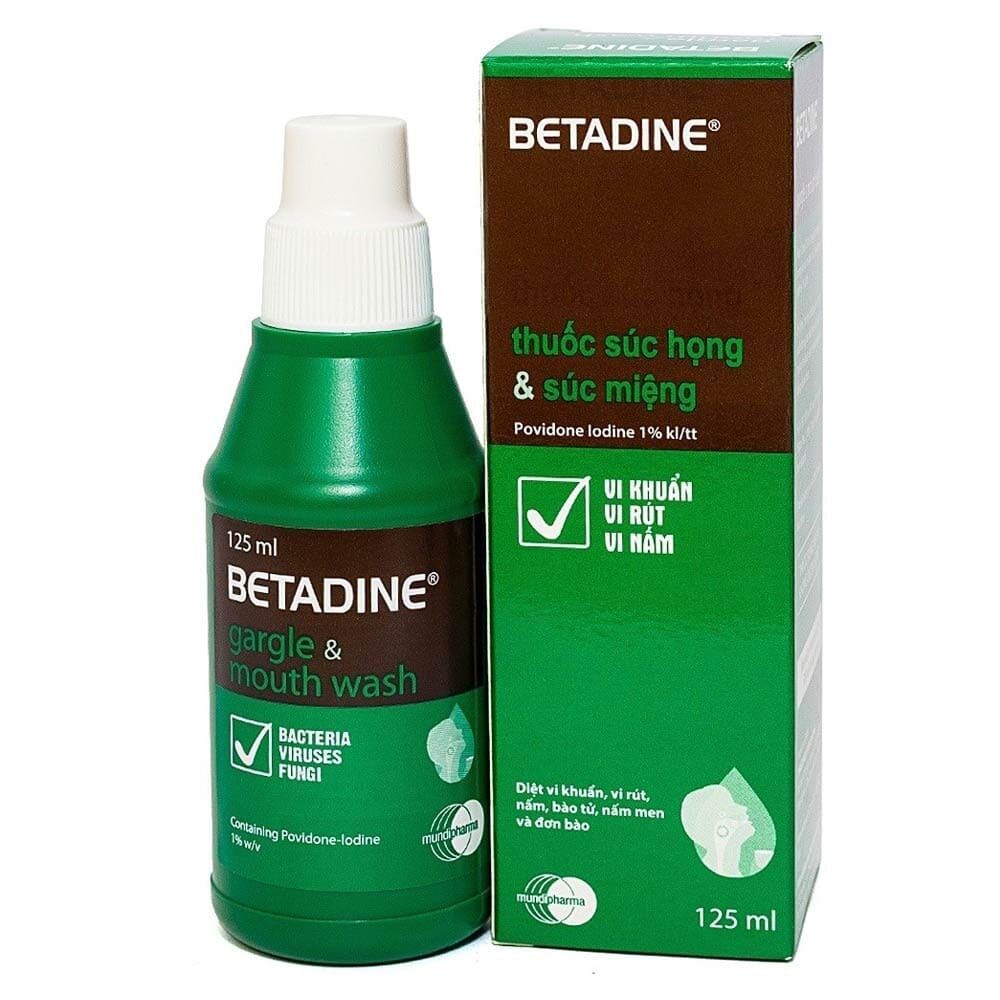When should I use mouthwash: Should I use mouthwash after brushing my teeth?
Gargling is a very important and necessary step of dental care. However, the ‘when to use mouthwash‘ and ‘use mouthwash before or after brushing your teeth‘ are a concern for many people. Let’s join Dr. Salt’s experts to find out exactly when to use the most reasonable mouthwash!
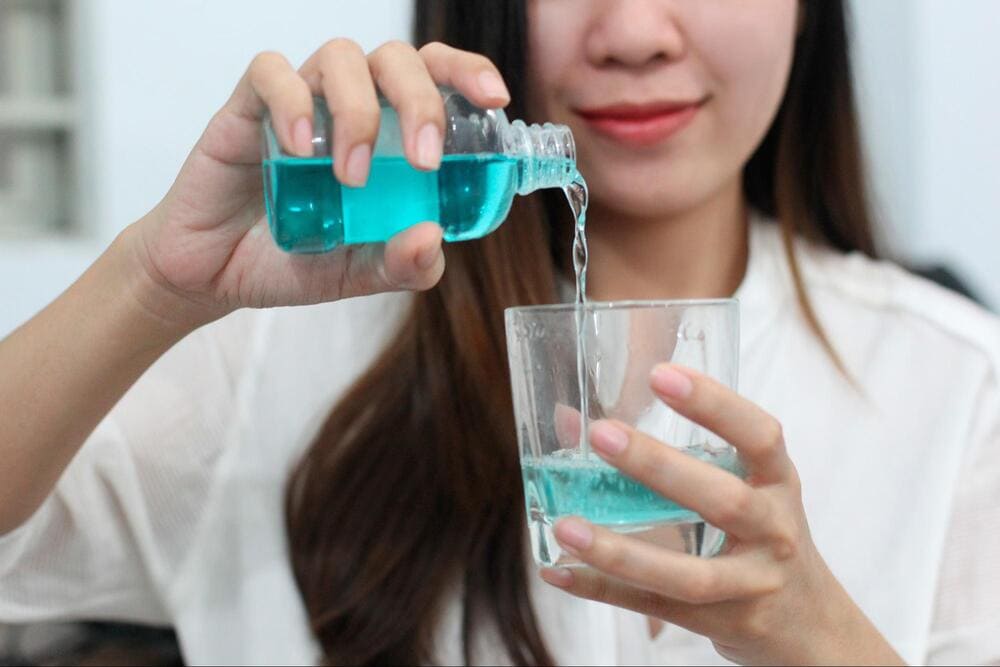
1. Use mouthwash before or after brushing your teeth.?
1.1 When to rinse your mouth before brushing your teeth
Many people think that the teeth contain the most bacteria after a long sleep. Therefore, using mouthwash before brushing your teeth when you wake up helps to eliminate many bacteria. This prevents tooth decay and other dental problems.
In fact, in the morning when you wake up, just take a sip of mouthwash just enough. You should rinse your mouth for 1 minute before brushing your teeth for effective oral hygiene. When there is no time to brush your teeth immediately after waking up, the use of mouthwash helps the oral cavity to be temporarily cleaned.
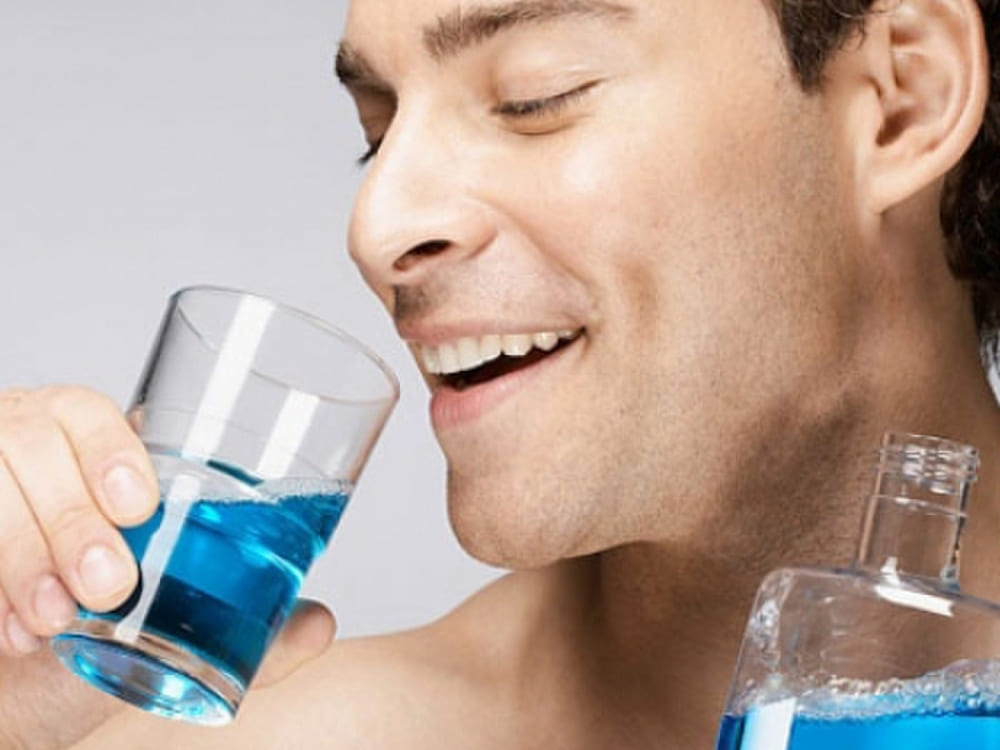 In the morning, you can rinse your mouth before brushing your teeth to kill bacteria.
In the morning, you can rinse your mouth before brushing your teeth to kill bacteria.
Once you’ve rinsed your mouth, you can brush your teeth when you’re free afterwards. Experts recommend rinsing your mouth before brushing your teeth if you have cavities or gingivitis. The antiseptic ingredient in mouthwash helps kill bacteria, cleaning the blood that leaks from the periodontal after you wake up effectively.
After a meal, if you do not brush your teeth, use a mouthwash for 30 seconds. This also helps to clean the plaque of food left in the mouth. Therefore, it is recommended to use mouthwash at any time depending on the specific time and circumstances.
1.2 Should I use mouthwash after brushing my teeth?
Currently, most mouthwash products on the market are recommended last in the process of daily dental care. Because using mouthwash after brushing your teeth cleanly is considered a final “total hygiene” step, helping to wash away food crumbs that remain in the teeth.
In addition, the ingredients commonly found in mouthwashes such as Fluor also help improve the health of tooth enamel, deodorant essential oil brings fresh breath,… Therefore, if you use mouthwash before brushing your teeth, these effects no longer make sense.
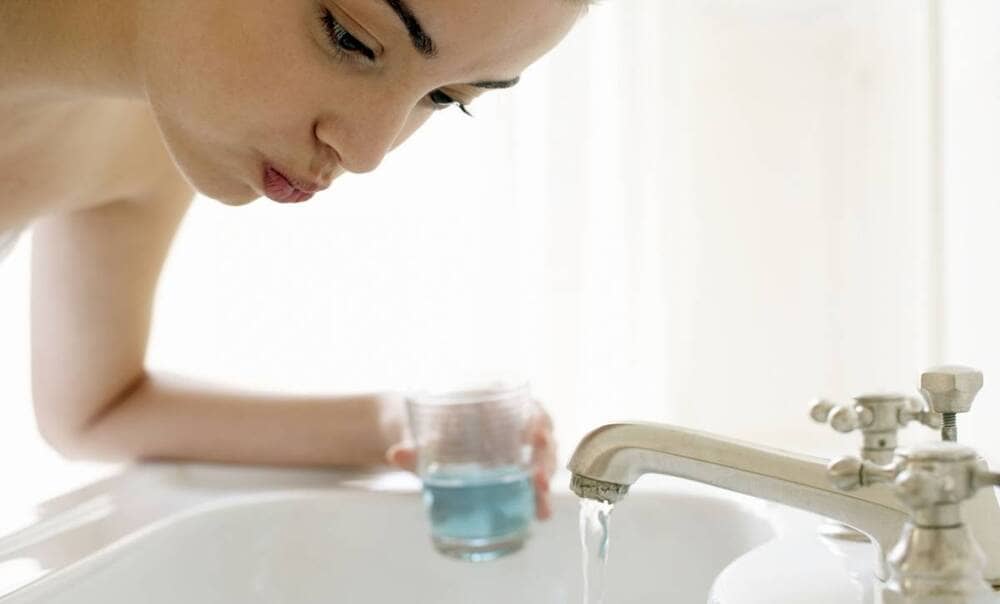
Conclude:
So when should I use mouthwash so that my teeth are completely clean?
You should rinse your mouth before brushing your teeth in the morning when you wake up. In contrast, in the evening before going to bed, you should use a mouthwash after brushing your teeth cleanly. This is a procedure that you should take seriously every day to ensure that the oral cavity is always cleaned. At the same time prevent bacteria that are harmful to the teeth during sleep.
2. When should you use mouthwashes?
2.1 Natural mouthwash
– Dr. Salt MouthWash
Dr. Salt is a benign, gentle dental care product, extracted from sea salt completely naturally. The main component of the product is sodium chloride 0.9%, sodium benzoate helps to eliminate bacteria, odors and keep the breath smelly, natural.
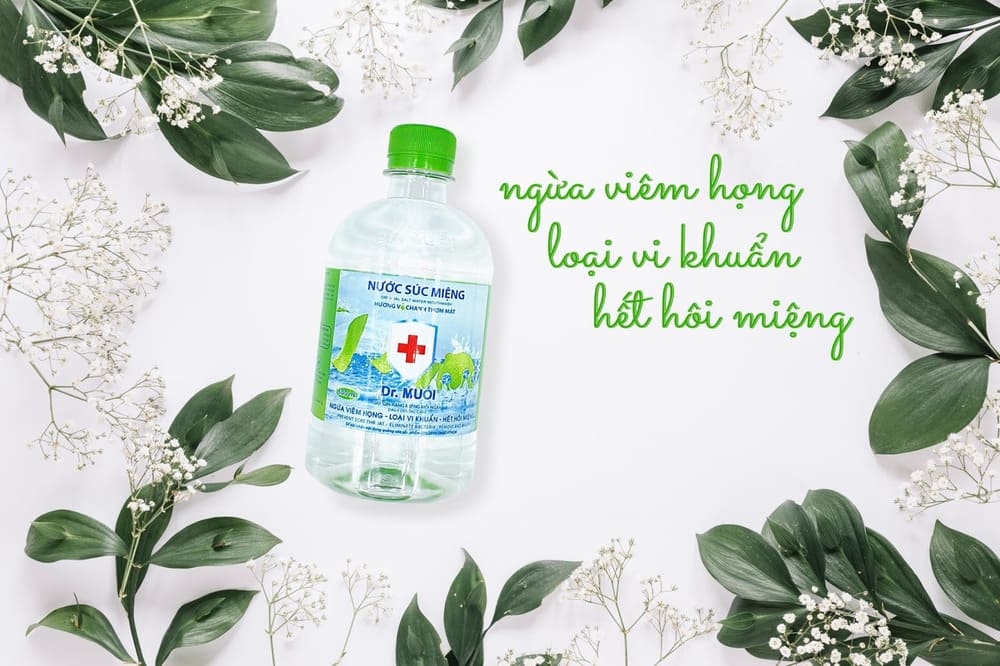 Dr. Salt contains minerals that help protect oral health.
Dr. Salt contains minerals that help protect oral health.
In addition, in Dr. Salt mouthwash also adds minerals such as Ca, K, Mg,… Good for the teeth. Regular use helps protect healthy teeth, prevents the pathologies of gum inflammation, sore throat effectively. Dr. Salt mouthwash is suitable for use both before and after brushing your teeth.
– Thanh Huong Plus MouthWash
Thanh Huong Plus is a mouthwash that has been inspected and licensed by health authorities to circulate on the market. In the product contains natural herbal ingredients such as squid grass, rosemary, patchouli, mint,… specialized in treating odors in the oral cavity, suitable for use after brushing teeth
Using mouthwash regularly helps to disinfect on a large scale, prevent plaque from forming in the teeth, reduce odors for the teeth and bring fragrant, pleasant breath.
2.2 Mouthwash of neopharmaceutical origin
– Givalex solution:
Givalex mouthwash has antiseptic and anti-edema effects, which is usually indicated for use when there is a sore throat, inflammation around the teeth. Using Givalex, you need to dilute with warm water in a ratio of 1:10, absolutely not to rinse directly. Givalex mouthwash is suitable for use before brushing your teeth
– Betadine solution:
Betadine contains a concentration of 7% iodine, which can be released gradually and create effective antifungal, antifungal capabilities. In particular, Betadine helps to lose bad breath very well, suitable for use after brushing teeth and clean oral hygiene.
7% iodine in the product helps prevent tooth decay well.
– Listerine solution:
Listerine is a popular mouthwash solution on the market, whose main ingredient is Thymol concentration of 0.0064%. The main uses of the product are antiseptic and mild anti-edema, protecting the oral cavity from bacteria. The product is suitable for gargling both before and after brushing your teeth.
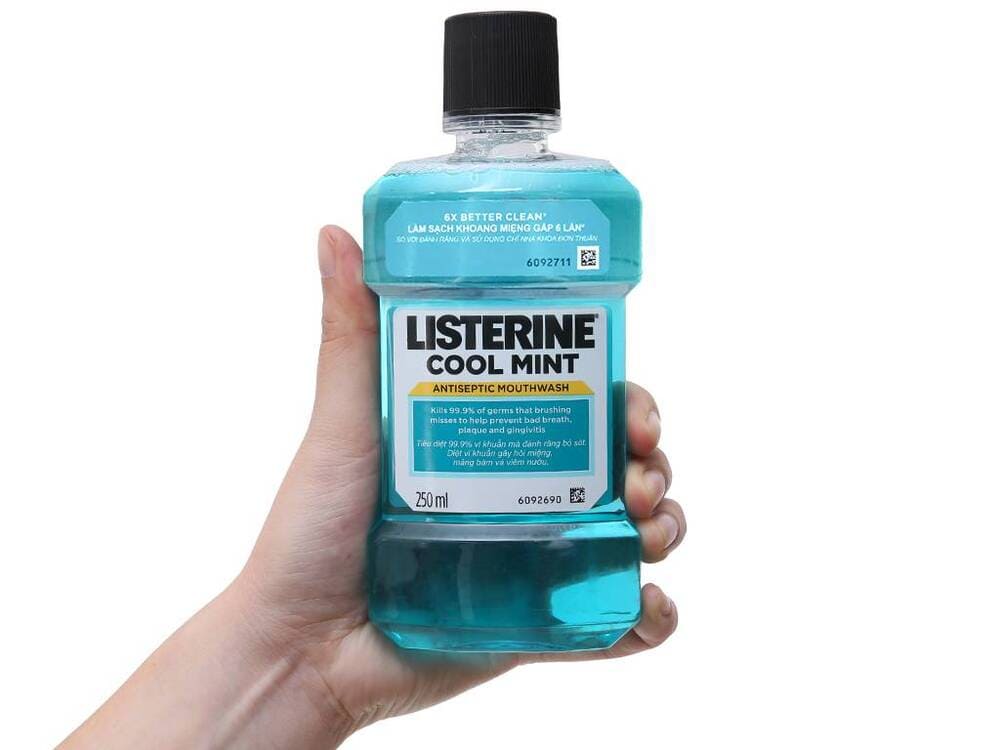
– T-B solution:
T-B is also a favorite mouthwash. The main components of the T-B solution are Boric Acid 0.3% and some essential oils, which give the product a pleasant scent when used. The product is suitable for use after brushing your teeth.
The use of mouthwash before or after brushing your teeth will depend on the time of day and the needs of dental care of each person. However, it is best to rinse your mouth after brushing your teeth daily in the evening to make sure the oral cavity is always clean. Combine with the right mouthwash to give the best oral hygiene effect.
Refer to the related article:
Note when using Bactericidal mouthwash
Guide how to rinse your mouth with mouthwash

